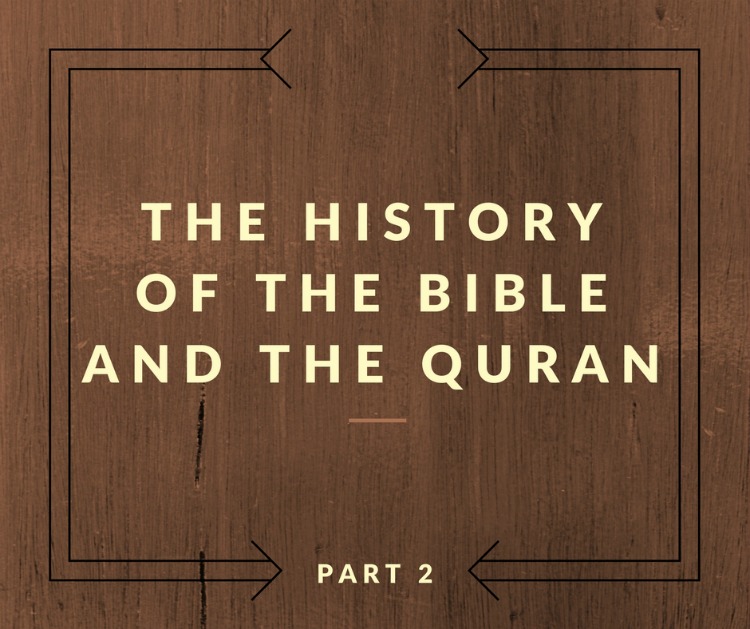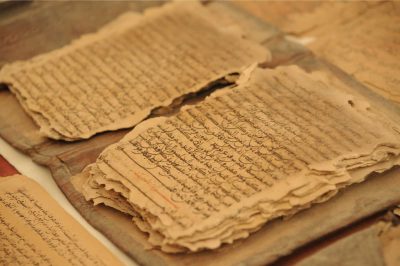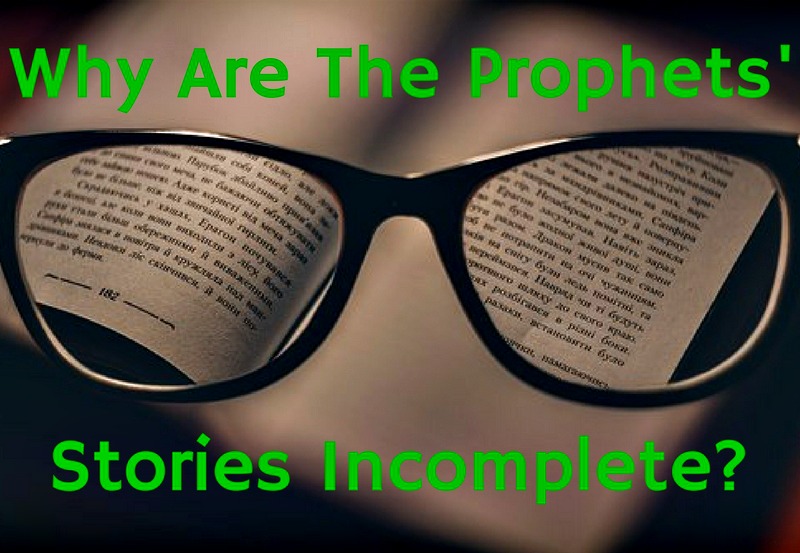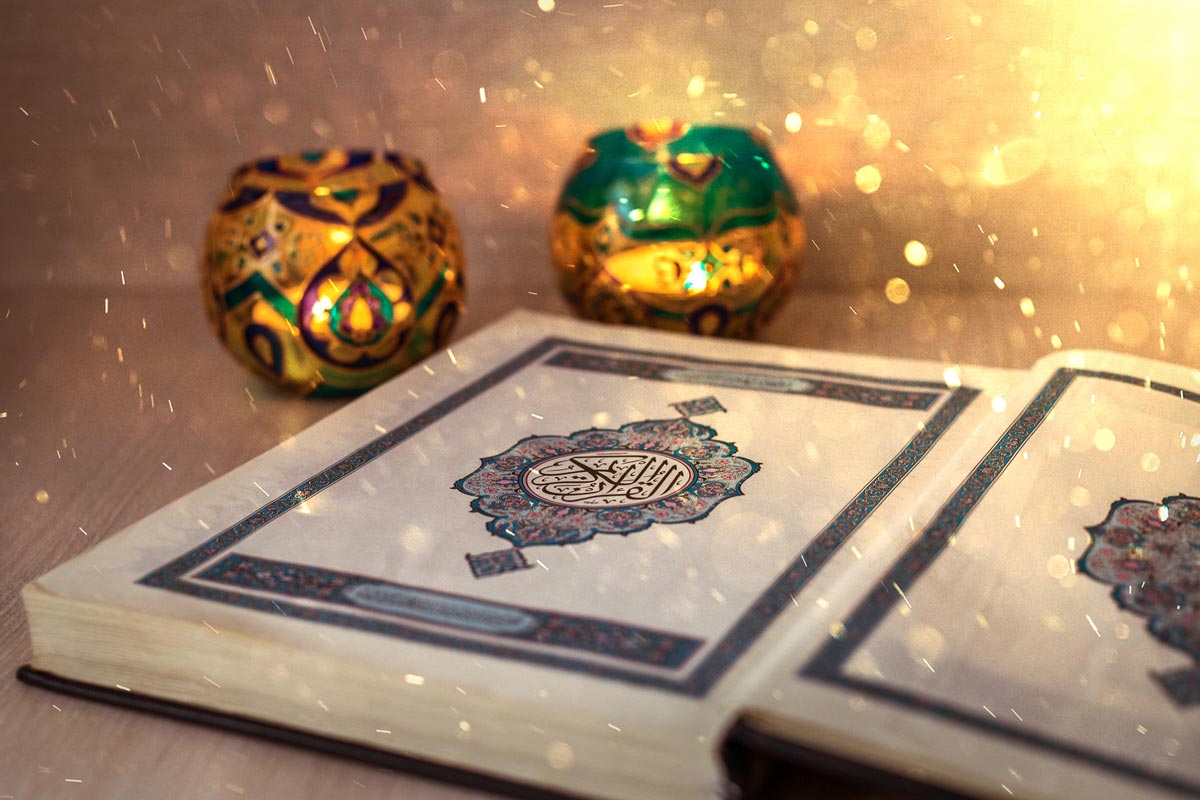Towards the end of this journey with the themes of the Quran, we will stop today with a theme that has a lot to do with the methodology, as our guide throughout the themes that we talked about. It is the theme of history in the Quran.
There is a lot of history in the Quran, and we can say that the whole Quran could be useful for historical reflection. There are parts that are directly related to history and historical stories, what the Quran calls “Al Qasas”.
The word history in Arabic is “Tarikh” and it has to do with dates and centuries…
Al Qasas is to follow the events that are not really stories, but they are history. History in the Quran is a major theme and it teaches us major lessons.
First of all, lessons that are related to our identity because the Quran gives us history of humanity and history of Islam that if we internalize and we associate ourselves with Muslims, with believers, with how the Quran defines Muslims and believers, then we have a different identity actually from the identity we associate with when we read books of the Islamic history.
Islamic history is a science that appeared throughout the Islamic civilization and historians did us a huge favor by giving us historical accounts of what happened.
But there is a difference in the history of the Quran, the Islamic history there is versus the Islamic history that you read in At-Tabari, Ibn Kathir, Adh-Dhahabi, or any of these great scholars that gave us history.
It All Started with Adam
The first difference in the Quranic theme of history versus the Islamic books of history is the definition of Islam. Islam is not just a religion of Prophet Muhammad (peace be upon him), and the Islamic history did not start with the message of Muhammad, it actually started with Adam (peace be upon him).
Adam was a Prophet of Allah of Islam, and Noah, Saleh, Hud, and so forth.
So, Islam is the religion from the time of Adam until today. The history of Islam is a history of faith and truth from the time of Adam. In fact, before the time of Adam, Allah told us about Al Jinn, other beings that He created; he told us that some of them are Muslims and some of them are not.
Therefore, Islam is before that. All the creations that Allah created and gave the choice to believe or disbelieve are part of the history of Islam in that sense.
Therefore, it is part of the history of Islam to study the history of Christianity from an Islamic point of view; it is part of the history of Islam to study the history of Judaism from an Islamic point of view, from the point of view of Moses as we understand Moses (peace be upon him) in the Quran.
History of the Rise & Fall of Civilizations
The Islamic history, as well, as the Quran is telling us about, is the history of rise and fall of civilizations. But the rise and fall of civilizations, according to the Quran, is not the rise and fall in power, or military might, or the richness, gold, and palaces, or even civilization in the sense of the material roads, bridges; this is not the rise and fall of the civilizations according to the historical account of the Quran.
The history of the Quran defies the rise and fall of civilizations as the moral rise and fall, the rise and fall in faith. The higher the faith is, the brighter the history is. This is the history of the Quran, and it is not about the artifacts and the material.
Even though the artifacts are good if they are going to be part of the history of faith, but not good if they are going to be part of history of tyranny, or history of might and certain families that had authorities…
When we look at the Islamic history or many other accounts of history, they are the history of ruling families, and historical centuries are divided according to the ruling families. Therefore, we have of course after the guided caliphs, after Prophet Muhammad (peace be upon him), we have our Islamic history divided according to the Umayyads, Abbasids, Fatimides, and the Ottomans…
All of this is a mixture of good and evil. Some of these kings were good caliphs in the true sense of the Muslim leader, and some of them were not. Therefore, not all of them are the same when it comes to the Islamic history, and we should not associate ourselves with that history in total, but we associate ourselves with the good sides of that history.
Gaps in Islamic History
The history of civilization, according to the Quran, is not just the history of the politics of that civilization, but the other sides of that history.
We have a great gap in our Islamic history when it comes to the history of science in Islam, the history of societies, the history of arts in Islam… all of these are part of the Islamic history.
When the Quran talks about the past, it talks about everything with faith at the core of that; but it also talks about how people trade, how people build buildings, how societies lived, and how language was practiced…
All of these are dimensions of history that have to be taken into account. And all of these we learn from the thematic interpretation of the Quran that looks at the theme of history.
Integration of History
Also, the stories that are mentioned in the Quran are mentioned not for entertainment but for the sake of the high examples that they give.
Therefore, the stories cannot be fragmented; they have to be integrated in our thematic interpretation that has to do with history. We look at all the bits and pieces of the story of the children of Israel, for example, to understand the history of Judaism from that.
We look at all the bits and pieces of history of Christianity, according to the Quran, in order to understand Christianity and its history very well.
Without that integration, then we fragment the history.
But, why did the story go in more than one chapter?
Because every chapter has an objective, and every part of a story that fits in a particular objective goes under that chapter that had that objective. Therefore, when we read the chapter, it takes us throughout a journey that leads to a particular objective of the chapter that integrates the different bits and pieces of stories within that chapter.
But a thematic look at the stories, or histories in the Quran, will have to integrate and have to take these bits and pieces of the story of Adam and integrate them in order to understand our history from the time of the beginning of humanity with Adam (peace be upon him).
Real Heroes in Islamic History
Lessons have to be learned from that history so that we don’t repeat the same mistakes that some civilizations had committed when they took care of their material welfare and basically ignored the moral side of their societies.
That is when civilizations start to fall, and that’s how civilizations fell according to the Quran. And they rose when they were faithful to Allah, and their morals, and built their civilization based on that. That lesson of history is very important for the sake of our identity and how we define rise and fall.
People who tried to change the course of history in order to bring back the principles of Islam and therefore, sometimes put their lives in danger and sometimes even gave their own life for the sake of trying to change the course of history from going down to trying to go up according to Islamic criteria, are historical heroes.
Sometimes when we read in the Islamic history, the heroes are defined according to other criteria other than the definition of the Quran for heroes who might lose their lives, but they support the truth.
This is how the Prophets died for the sake of Allah and this is how some great people in history had given their lives for the sake of the truth, and this is how great people in our Islamic history had also given their lives for the sake of the truth.
And following the example of the grandson of Prophet Muhammad (peace be upon him), Al Hussein, the example of the other caliphs like Abu Bakr, Umar, Uthman, Ali, Umar ibn Abdul Aziz… who gave their lives really in defense of the truth that they stood for. Most of them actually lost their lives by assassination because they stood for the values and principles of Islam. That is how history is made according to the Quran.
We ask Allah to guide us and forgive us. To watch the video, click here.
Part 1 – Part 2 – Part 3 – Part 4 – Part 5 – Part 6 – Part 7 – Part 8



